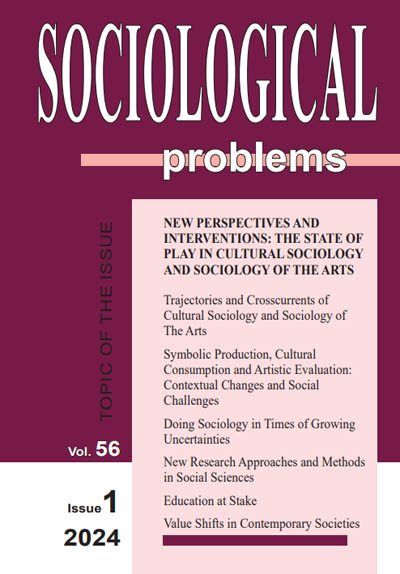Harvesting the Outcome: Dynamics of Adoption of New Accountability Method at the Core of a Membership-based Organization
Harvesting the Outcome: Dynamics of Adoption of New Accountability Method at the Core of a Membership-based Organization
Author(s): Petya KlimentovaSubject(s): Social Sciences, Sociology, History and theory of sociology, Applied Sociology
Published by: Институт по философия и социология при БАН
Keywords: critic; emancipation; reflexivity; outcome harvesting; justification; accountability
Summary/Abstract: The article traces the organisational dynamics that arise when a new outcome-reporting method is introduced in a membership-based organisation supporting vulnerable informal workers. First, the text clarifies Ricardo Wilson-Grau’s approach and the CLEAR approach to describing results in a framework for representing organisational actions. The article then explores how Luc Boltanski’s concept of “critical judgement” contributes to understanding the challenges inherent in this process. The text emphasizes the importance of critical dispositions and analysis of results, in the sociological perspective of emancipation. Through Boltanski’s ideas, the third part considers the results of participant observation illuminating how organizational members justify their actions to conceptualize, plan and report them as outcomes. Boltanski’s concept helps to understand impact holistically, beyond the result as a completed task (output, i.e. a manufactured product, a printed brochure, an organised event etc.) to the manifestation of a change for the target groups of organizational efforts. An emancipatory perspective shifts the focus from individual effort to actual change for the common good, presenting obstacles and opportunities.
Journal: Социологически проблеми
- Issue Year: 56/2024
- Issue No: 1
- Page Range: 236-250
- Page Count: 15
- Language: English
- Content File-PDF

